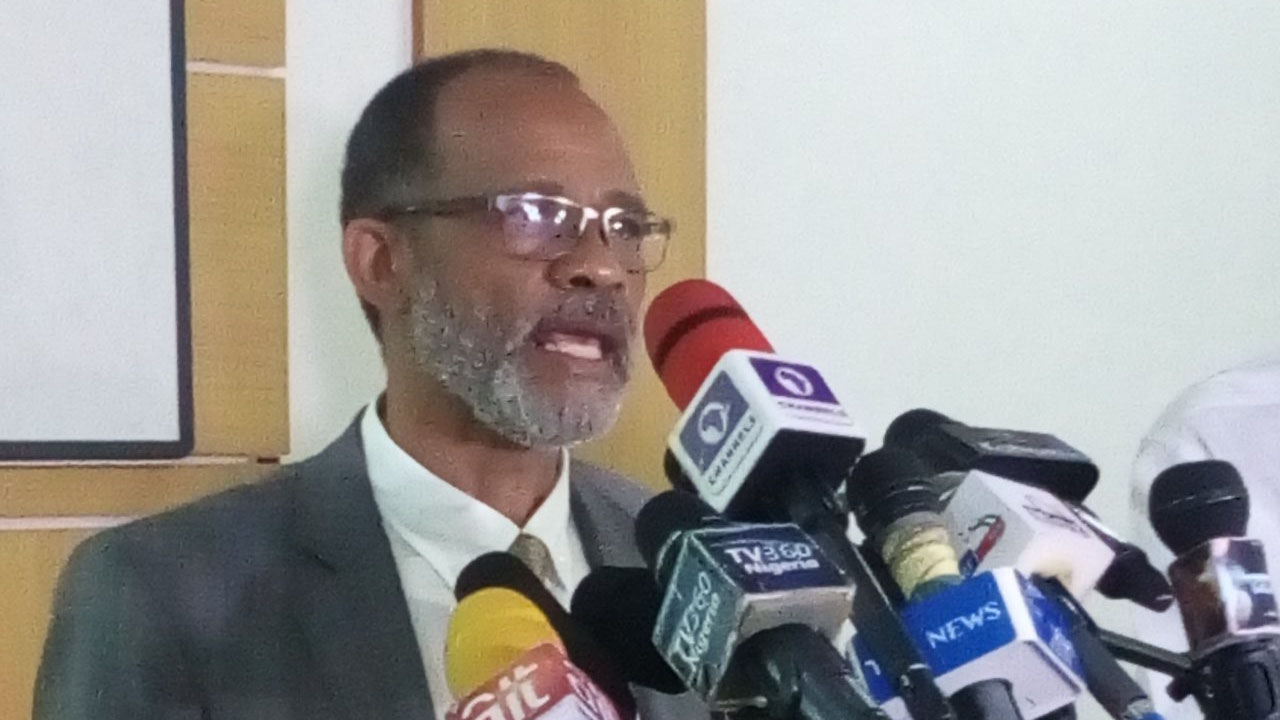
NIPRD signs pact with S’Africa for better trado-medicine practice
Amid reports of countries around the world relaxing COVID-19 restrictions, Lagos State Commissioner for Health, Prof. Akin Abayomi, has sounded a note of caution to Nigerians, warning that the threat of the pandemic still looms high.
The warning was given during a panel discussion by leading health maintenance firm, Avon Healthcare Limited (Avon HMO), at the maiden Nigerian-British Chamber of Commerce Conference and Exhibition in Lagos.
Moderated by the company’s CEO, Adesimbo Ukiri, the panel was an assembly of leading healthcare experts brought together to discuss the topic: “Healthcare in Nigeria – Beyond the Crisis.”
Also with the commissioner are the Director-General of the Nigeria Centre for Disease Control (NCDC), Dr. Ifedayo Adetifa; Medical Director/CEO, First Cardiology Consultants, Dr. Adeyemi Johnson and Founder/CEO of Doctoora, Debo Odulana, to offer their perspectives on what lies ahead for the country’s health sector, two years after the pandemic was first discovered in Nigeria.
On whether Nigeria could toe the line of countries like the United Kingdom, New Zealand, Indonesia and others, Abayomi said the low rate of vaccination in the country remains a cause for concern.
“The countries you are referring to are close to, or already 100 per cent vaccinated. Some are over a 100 per cent vaccinated with boosters, while some are even going into double boosters. We have five per cent of our population vaccinated. Unless there is some genetic protection, Nigeria and Africa remain the opportunity for the virus to do what it knows how to do best.”
The commissioner, however, acknowledged that while the crisis phase of the pandemic might have been be over, the state of healthcare in the country necessitates continued vigilance to prevent surges in infections, even as things go back to normal.
“Covid is not over, but I believe the Crises should be over. Our role as the government is to ensure that we balance the public health response with maintaining the economy of the nation. The virus is looking for opportunities to spread all the time and if it finds a community that is unprepared, either in terms of a public health response or in terms of boosting the immunity of its people, it will circulate within that population.
“Our health systems were nowhere near what they have in Europe and America and yet we could see that their health system broke down. So, if we had the same kind of disease profile in Nigeria or sub-Saharan Africa, it would have been a devastating outbreak for us.”
To this, the panelists affirmed the need to remain conscious of the threat posed by the virus. For Adesimbo Ukiri, Nigerians can’t afford to let their guard down even as they go about their daily socio-economic activities, while Dr Odulana noted that continuous awareness of safety habits should remain a priority.
“It is important for us to adapt the behaviors that will protect us. We need to keep masking up, washing hands and practice crowd control as best as we can. There is still a lot of work as regards behavioral change that should go into dealing with the virus,” Odulana said.
IN another development, the National Institute for Pharmaceutical Research and Development (NIPRD) has signed a Memorandum of Understanding (MoU) with the University of KwaZulu-Natal (UKZN), South Africa to improve the traditional medicine industry and ensure medicine security in Nigeria.
The collaboration, which focues on research and development, human capital development and community engagement, in the context of the traditional medicine value chain, is to produce a number of socio-economic benefits, including business and investment opportunities, job and income generation opportunities in the African Traditional Medicine Pharmaceutical Value Chain, especially traditional health practitioners.
Speaking at the event in Abuja, Minister of State for Health, Senator Olorumibe Mamora, stated that traditional medicine, “is part and parcel of the Nigerian culture, therefore whatever barriers that there are, especially in the areas of recognition, labeling and dosage, must be removed.”
On his part, Director General of NIPRD, Dr. Obi Adigwe, said Africa needed to take responsibility for access to safe, affordable life-saving medicines for the people of the region.



